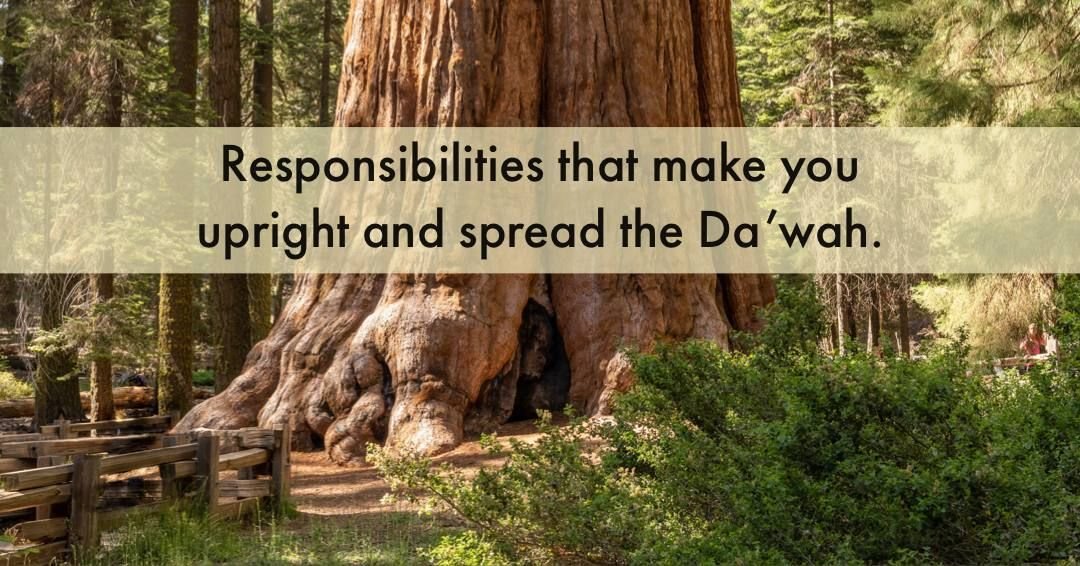In The Name of Allaah, The Most Merciful, The Bestower of Mercy.
Imaam Al-Awzaa’ee [may Allaah have mercy upon him] said, “O Muslims! Fear Allaah, accept the advice of the sincere advisers and the admonition of the admonishers. know that this knowledge is religion, so beware of what you do, from whom you take your religion, the one you follow and the one with whom your religion is safe, because indeed all the proponents of religious innovation are all falsifiers, liars and sinners. They are not cautious – neither do they pay attention nor do they fear, and together with that they are not to be trusted that they would not distort what you hear.
They say what they do not know with regards to what they disapprove and when proclaiming their lies; but Allaah (knows, hears and sees) what they do. Therefore, be cautious of them, trust them not, reject them and avoid them, because indeed this is what your earlier scholars did and commanded, and likewise the righteous ones who came thereafter.
Be careful of opposing Allaah and being the means to destroying the religion He has ordained – breaking its commands and prohibitions, nullifying and weaking it by respecting the innovators in religious affairs and those who initiate that which is not from the religion, because you know what has been transmitted (i.e. the prohibitions) about respecting or exalting them. And what can be greater respect and exaltation than acquiring your religion from them- following and believing them, drawing close to them and assisting them in enticing the ones they entice and woo to their views and the religion (i.e. religious innovations) they follow. This is sufficient to be regarded as associates of theirs in what they do. (1)
Mubtadi and His Followers
Question to Al-Allaamah Zayd Bin Haadi [may Allaah have mercy upon him]: Is there a difference between the verdict against a person that he is from the people of religious innovation and the verdict that he is a Mubtadi [innovator]? And does the verdict against a person that he is not a Salafi or that he is a Hizbi necessitate that he is a Mubtadi [innovator]? Can you please shed light on this affair?
Answer: Firstly, you should know that indeed Ahlus Sunnah are people who fear of Allaah. They neither make Takfeer [i.e. declare a person a disbeliever], Tafseeq [i.e. declare a person a sinner] and Tabdee [declare a person an innovator] except against the one who deserves it based on the evidences in the Book and the Sunnah, and the understanding of the pious predecessors of this Ummah.
Secondly, you should know that the people of desires and misguidance are [categorized into] those who are followed and those who follow. Indeed, those who are followed are the ones who set up the various principles of Bidah and call to their innovation and misguidance, and they will carry their burden of sins and the burden of the sins of those whom they misguided without knowledge, as it is clearly stated in the Qur’aan and the Sunnah.
As for the followers of a leader from amongst the people of desires, then in most cases they are of two categories:
The First Category: Those who possess knowledge, but they harbour evil intentions, so they yield to Satan, desires and the urge of the evil soul. They follow the people of misguidance and oppose the callers to guidance [in that which] Allaah sent His Messenger Muhammad [sallal-laahu-alayhi-wasallam] with.
The Second Category: Their share of knowledge is little, so the people of desires take advantage of them and they become [part] of their group. They convince them that what they call them to is the manifest truth and that what their opponents are upon is falsehood. And they convey to them a huge [number] of affairs that resemble the truth but are falsehood in reality, in order to deceive them and submerge them into misguidance.
As for those who are followed-those who set up principles of bidah and call the people to their bidah and misguidance-then indeed they are marked with the bidah they innovated and call the people to, and for them there is no honour.
As for the followers of the people of desires, it is as I have stated that they are of two categories in most cases. They are to be called to the Sunnah and to cling to it, and that they reject the bidah they have been deceived by and have yielded to. And if they respond to the call of truth through knowledge and action, and reject that which the people of desires and innovation call them to, then this is what is desired and it is a praiseworthy aim. If they reject the advice of the advisers and bargain with falsehood at the expense of truth, and give preference to innovation over the Sunnah, then they deserve to be assigned the term Mubtadi [innovator]. There is no honour for them after the truth has been established with its evidences and the falsity of that which is in opposition to it of newly invented affairs in the Religion has been clarified, which the Messenger [sallal-laahu-alayhi-wasallam] referred to as misguidance. (2)
Question to Al-Allaamah Ubayd Bin Abdillaah Al-Jaabiree [may Allaah preserve him]: The questioner says: Assalaamu alaykum warahmatullaahi wabarakaatuhu. We hear a statement from some of the Mashaayihk of Ahlus Sunnah: ‘’This man is from the people of Bidah’’; is it understood that he is a Mubtadi [an innovator] or not?
Answer: What I have knowledge of is that this statement has two applications according to Ahlus Sunnah. The first of them and it is what is meant in most cases is that he is a Mubtadi [an innovator]. He knows the truth but he is an obstinate person. He refuses [truth], but not deviation; he knows the Sunnah, but refuses to follow it and [follows] Bidah. He commits Bidah whilst knowing that it is bidah.
The other meaning is that this man is a person upon innovation-meaning: He commits bidah even though he is not an innovator, because what we know regarding the methodology of Ahlus Sunnah Wal-Jamaaa’ah is that they do not declare any specific person an innovator until the proofs are established against him. (3)
Whoever Does Not Make Tabdee of a Mubtadi Is Also A Mubtadi – [Clarification of This Statement By Al-Allaamah Rabee Bin Haadi]
Al-Allaamah Rabee Bin Haadi [may Allaah preserve him] stated: It is not correct to apply this principle unrestrictedly because it maybe that he is unaware of the Bidah committed by that person, therefore he refrains from declaring him a Mubtadi [an innovator] due to [ورع – i.e. fear of falling into a doubtful matter that might lead him to something forbidden and affect him in the afterlife]. Why should you declare him an innovator? [i.e. why should you declare him an innovator when it is the case that he is unaware of the bidah of that Mubtadi or refrains from making Tabdee out of ورع ]. However, if he knows the innovator [i.e. knows that such a person is upon bidah due to which the evidence was established against him], loves him and allies with him, then he is a Mubtadi. This is the distinction in this affair. He knows that that person is a Mubtadi but he aids him and wages war against Ahlus Sunnah Wal Jamaa’ah, then he is a Mubtadi without a doubt. As for a person who does not know that such and such person is a Mubtadi, he is not to be declared an innovator.
You [i.e. the scholar, or student of knowledge who is qualified to make Tabdee] – the one who studied the affair of [that person] and you know that he allies with a Mubtadi, places him in a favourable position, wages war against Ahlus Sunnah for the sake of that Mubtadi and for the sake of this falsehood, then this person is a Mubtadi, misguided. As for the person who does not know that indeed such and such person is a Mubtadi, then advise him and clarify for him [i.e. with clear unambiguous proofs until he understands] that such person is a Mubtadi. So, unless he ceases [i.e. refrains from defending this Mubtadi after understanding the evidences], then put him [in the same place] with his companion – the Mubtadi. (4)
Listen here By Shaikh Abu Hakeem [may Allaah preserve him]:
Rebuttal of The Claim “You Salafis Are Too Harsh”
The False Claim ‘’You Salafis Are Too Harsh’’ – By Ustaadh Abu Hakeem
[Ref1: Taareekh Dimashq 6/361]
[Ref2: An Excerpt from Al-Ajwibah Al-Athariyyah Anil Masaa-il Al-Manhajiyyah, Khamsoona Su’aalan Wa-Jawaaban: page: 18-19]
[Ref3: Al-Haddul Faasil Bayna Mu-aamalah Ahl As-Sunnah Wa Ahl Al-Baatil 60. slightly paraphrased]
[Ref 4:An Excerpt from ‘Awnul Baari 2/891’. slightly paraphrased]







